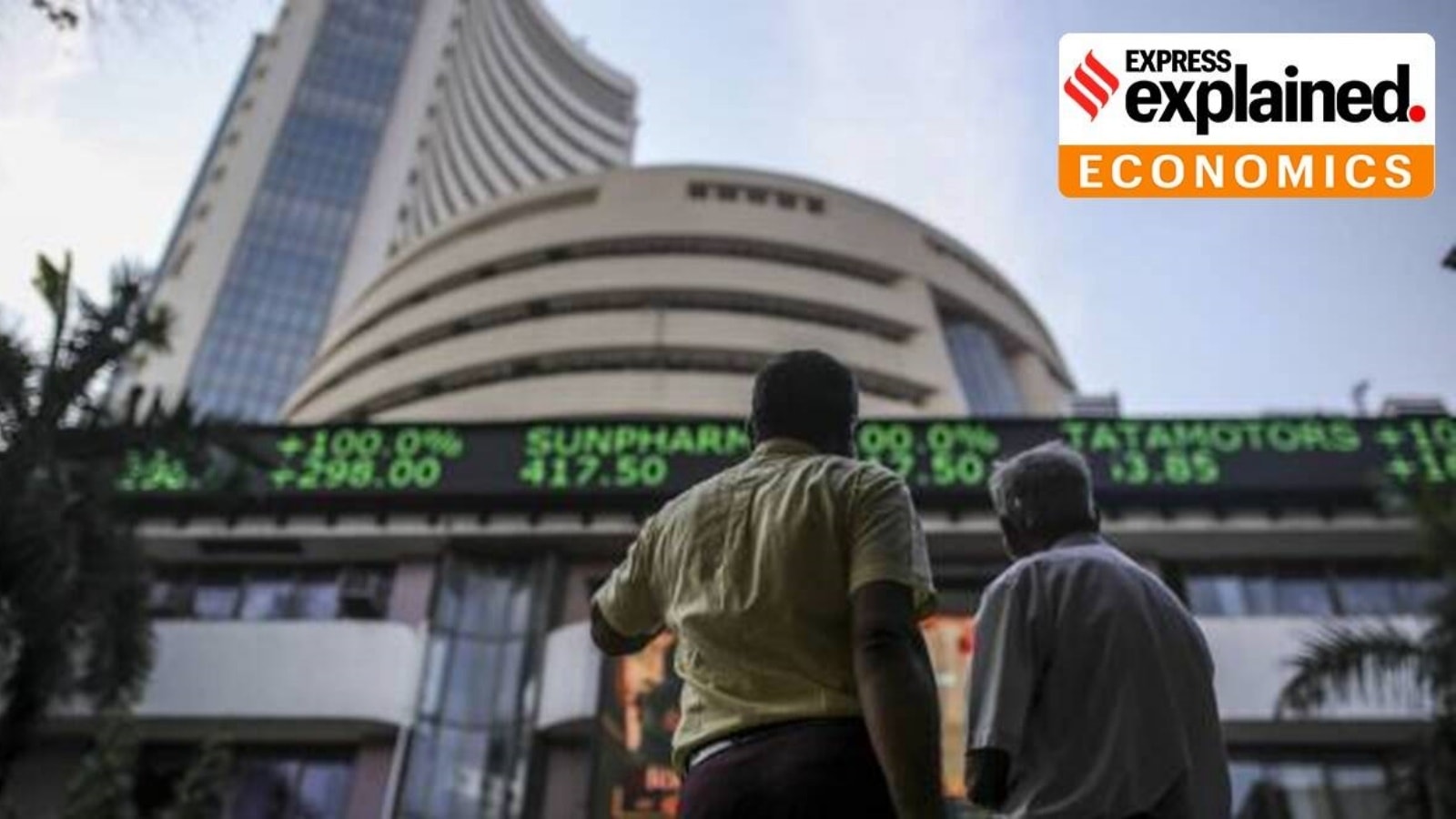Sensex down 930 points, Nifty down 0.65%: What triggered the fall?
On Monday (April 15), investor sentiments turned negative due to the renewed tension between Israel and Iran, after the latter launched drones and missiles on Israel on Saturday.
 The NSE companies that declined the most in the afternoon trades included Shriram Finance Ltd, Tata Consumer Products Ltd, ICICI Bank, Hindustan Unilever Ltd and Tech Mahindra. (File)
The NSE companies that declined the most in the afternoon trades included Shriram Finance Ltd, Tata Consumer Products Ltd, ICICI Bank, Hindustan Unilever Ltd and Tech Mahindra. (File)
Domestic benchmark equity indices Sensex and Nifty continued their fall on Monday (April 15) as investors turned risk averse due to the escalation of conflict between Iran and Israel. The BSE Sensex and Nifty 50 opened in red tracking weak Asian shares. Concerns over delay in the interest rate cuts by the US Federal Reserve and the recent India-Mauritius tax treaty amendment also weighed on investors’ sentiments.
How much has BSE and Nifty declined?
The 30-share Sensex opened at 73,315.16, down 930 points, or 1.25 per cent, as compared to the previous close of 74,244.9. The NSE’s Nifty 50 fell 180.35 points, or 0.8 per cent, to open at 22,339.05, as against the previous close of 22,519.4.
However, after opening down, both indices erased some losses in the afternoon trades. At 12: 45 pm, the Sensex was trading at 73,728.5 and Nifty at 22,377.
Why has the stock market tanked today?
On Monday, investor sentiments turned negative due to the renewed tension between Israel and Iran, after the latter launched drones and missiles on Israel on Saturday, in retaliation for an Israeli strike on April 1. This has raised concerns over the rise in the conflict between the two nations.
“There are many headwinds that will weigh on markets today: the renewed conflict in the Middle East, proposed changes in the India-Mauritius tax treaty and the hotter-than-expected US inflation are negatives,” said V K Vijayakumar, Chief Investment Strategist, Geojit Financial Services.
These negatives are partly priced in since a retaliation from Iran was expected and the higher US inflation was discounted by the market on Friday (April 12).
“In the wake of Friday’s trading session, Nifty encountered bearish trends amidst lingering concerns over CPI inflation in the US. Speculation mounted regarding the Fed’s rate-cutting plans for 2024, dampening market sentiment,” said Prashanth Tapse, Senior VP (Research), Mehta Equities Ltd.
India has recently signed a protocol amending its tax treaty with Mauritius with an aim to plug treaty abuse for tax evasion and avoidance.
The text of the amended treaty, which was signed in March but made public on Wednesday (April 10), has raised concerns of greater scrutiny on investments, which even led to a sell-off in the stock market by foreign portfolio investors (FPIs), who offloaded over Rs 8,027 crore worth of equities on a net basis on Friday.
Analysts said FPI outflows are likely to continue till the time there more clarity on the applicability of benefits under the revised tax treaty comes from the Central Board of Direct Taxes (CBDT).
Which stocks have fallen the most today?
The NSE companies that declined the most in the afternoon trades included Shriram Finance Ltd, Tata Consumer Products Ltd, ICICI Bank, Hindustan Unilever Ltd, and Tech Mahindra.
What is the outlook for the stock market?
According to Madan Sabnavis, Chief Economist, Bank of Baroda, the weekend attack by Iran on
Israel has created a new uncertainty in the markets and the full impact will depend on the evolving situation.
“If things remain where they are and there is no retaliation from Israel, then the nervousness should ease in a couple of days’ time and it should be back to normal,” Sabnavis said.
The US has indicated that there would be no direct intervention from their side while the rest of the G7 nations have condemned the attack but have not gone beyond this articulation. Iran is anyway a country loaded with sanctions and hence there can be no significant change in the economic dynamics.
Sabnavis said the alternative is one where Israel responds – which may not be immediate but with a delay so that the effect can have an element of surprise. This is a worrisome situation because while the escalation can lead to several countries supporting these two nations, the consequences on markets will be sharp.
“Hence, markets all over including India will be watching these developments carefully. Hopefully, the present crisis will also pass. But central banks would definitely be concerned and would be monitoring all such developments,” he said.
- 01
- 02
- 03
- 04
- 05






































